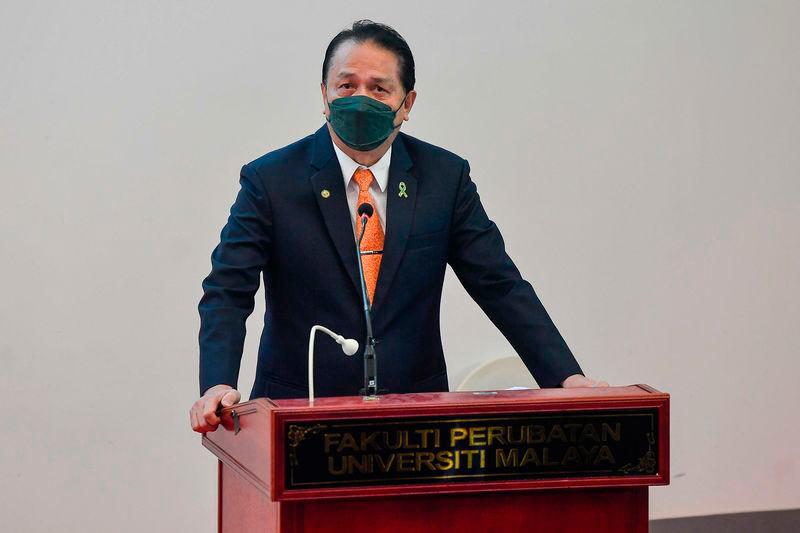PETALING JAYA: Heart attacks, strokes, and blood clotting problems that are still occurring now are not related to the AstraZeneca vaccine, said former Health director-general Tan Sri Dr Noor Hisham Abdullah.
In a statement released via X, Dr Noor Hisham said that the current occurrences of heart attacks, strokes, and blood clotting problems are due to other risk factors such as smoking, cholesterol problems, and diabetes.
He explained that the the vaccine was necessary for the vaccination programme because the death rate from Covid-19 among the unvaccinated population was very high, and vaccine supplies were insufficient. And high-risk groups including those with a history of blood clots were not allowed to receive the AstraZeneca vaccine.
“The Health Ministry had also issued guidelines to screen high-risk individuals from receiving this type of vaccine and for early detection of these side effects including AEFI (adverse events following immunisation),“ he said.
ALSO READ: AstraZeneca to focus on rare diseases, continuing local investments
In the post, Dr Noor Hisham shared that the vaccine side effect, which is known as Vaccine Induced Immune Thrombotic Thrombocytopenia (VITT), can only happen four times per one million injections.
Additionally, he said that the side effect only occurs within a period of four days to four weeks of receiving the vaccination, adding that the reported court cases were from the UK during the pandemic.
“Compared to the risk of blood clots and low platelets after Covid-19 infection itself, it is safer.
“After a Covid-19 infection, the risk of thrombotic thrombocytopenia (TT) is as high as 165,000 cases per one million infections. The incidence of blood clots among smokers is higher, nearly 1,800 cases per one million smokers.”
He added that there are no more VITT cases detected and reported now.
He also urged the public to distinguish between the side effects of VITT and other blood clotting problems.
READ MORE: Study confirms AstraZeneca jab’s higher risk of very rare clot









